
What is sustainable living? How Your Choices Shape a Sustainable Present and Future
By embracing sustainable living, we adopt practices that contribute to the well-being of the environment, society, and economy.
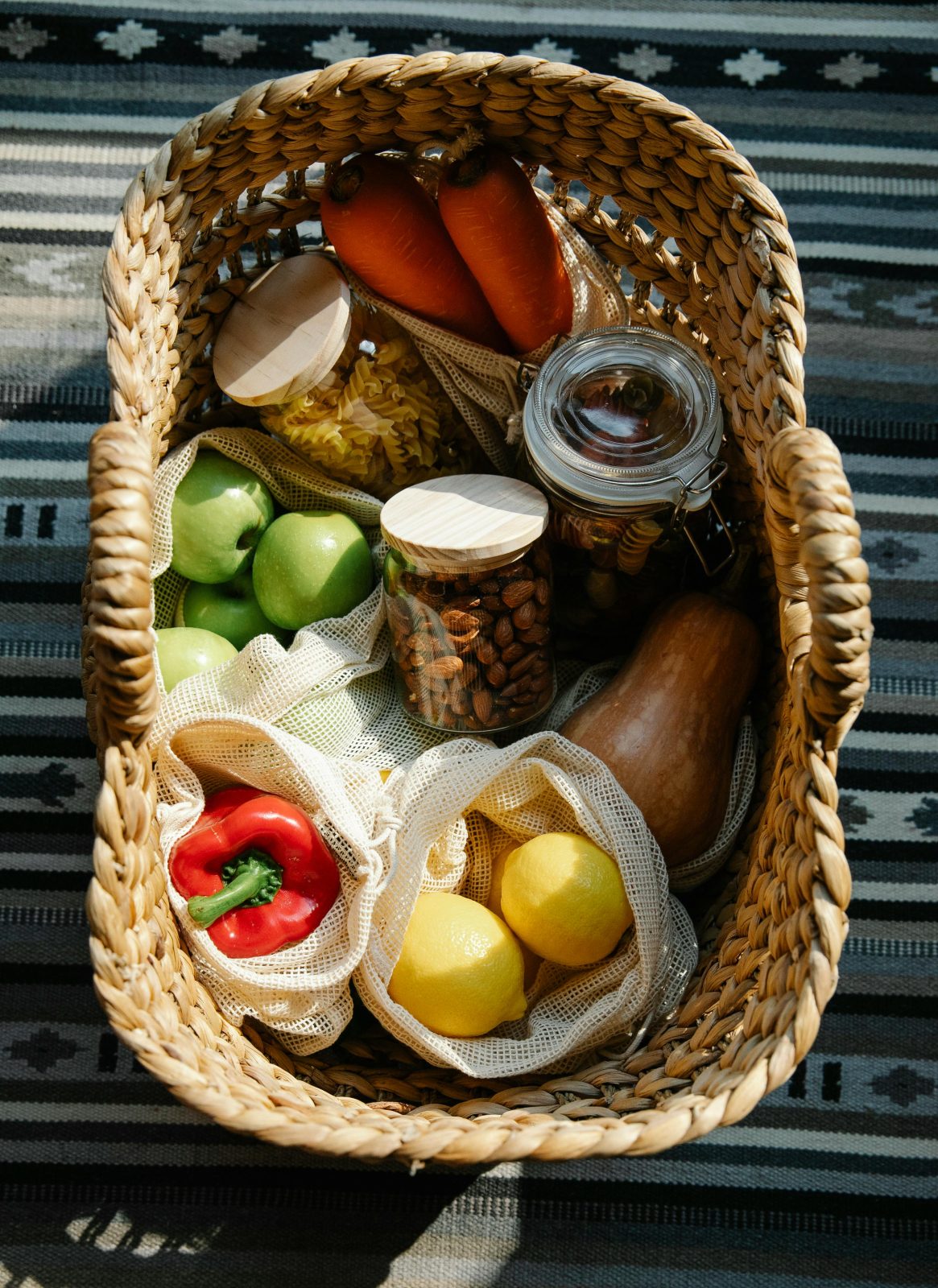
Reducing reliance on single-use plastics is a crucial step in the quest for a more sustainable lifestyle. In other words, single-use plastic needs to be canceled.
Single-use plastics, such as straws, bags, and bottles, are designed to be used once and discarded, leading to significant environmental problems.
Read more about plastic pollution in our previous blog posts:
But fear not! There are plenty of alternatives available that are both eco-friendly and affordable. Let's dive into some of the best options.
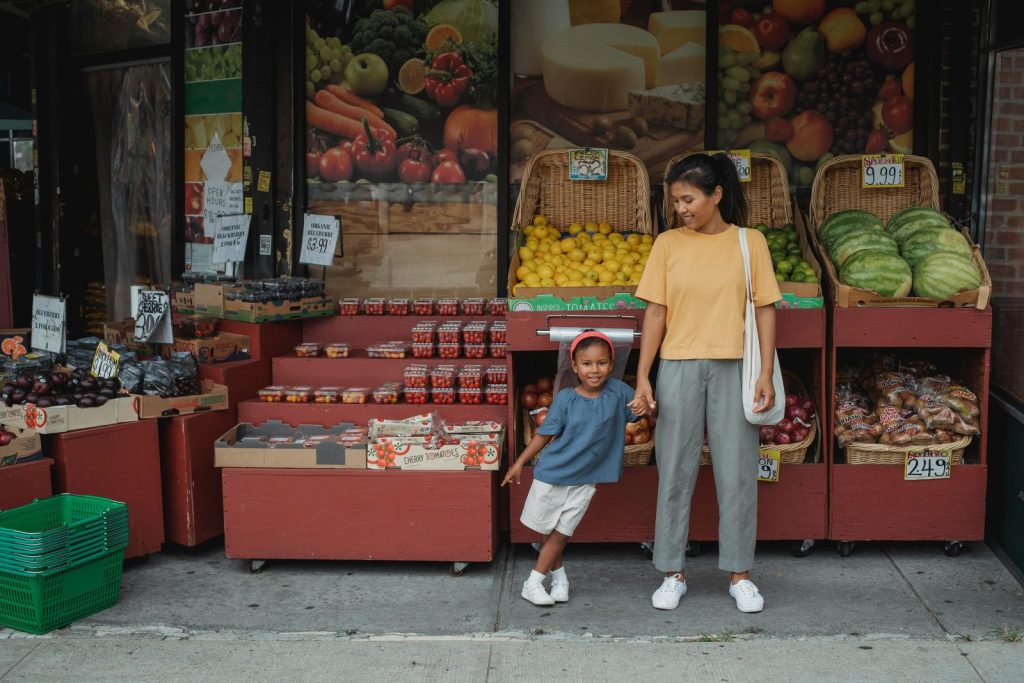
Photo by Kamaji Ogino: https://www.pexels.com/photo/happy-asian-mother-and-daughter-standing-near-street-market-stall-5094497/
One of the simplest and most effective ways to reduce single-use plastics is by switching to reusable shopping bags. These bags are made from different materials, including cotton, jute, and recycled plastic.
**Pro Tip**: Keep a few reusable bags in your car or near your front door so you don't forget them when shopping.

Photo by Megan Qualley on Unsplash
Plastic food storage containers are a staple in many households, but they often warp and degrade over time, leaching chemicals into your food. Instead, choose stainless steel or glass containers.
**Fun Fact**: Glass containers are transparent, so you can easily see what's inside without opening them—a win for efficiency and reducing food waste!
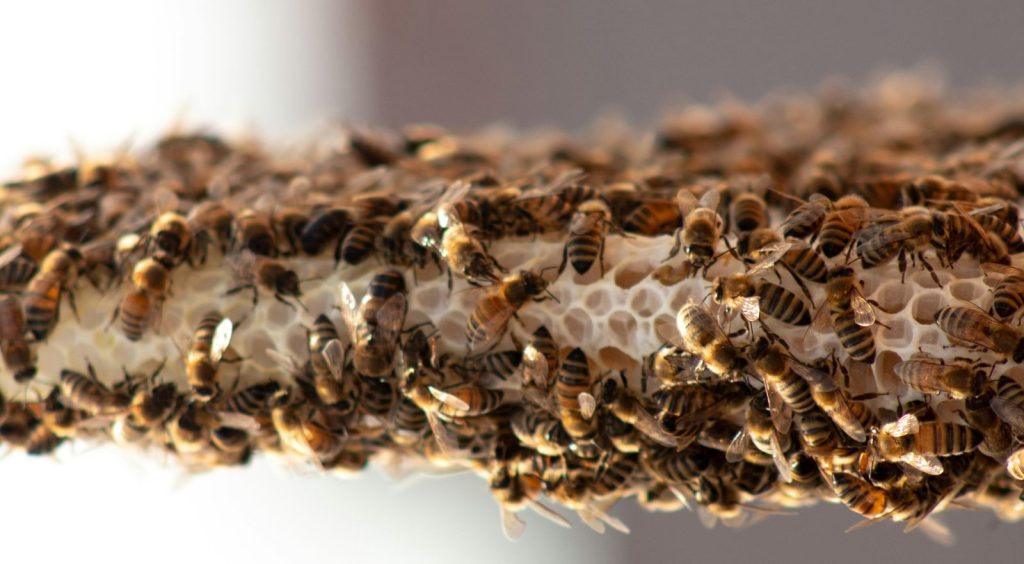
Photo by Meggyn Pomerleau on Unsplash
Ditch the plastic wrap and switch to beeswax wraps for food storage. These wraps are made from cotton infused with beeswax, resin, and jojoba oil, making them flexible and sticky enough to cover bowls and wrap sandwiches.
**Eco-Hack**: Make your beeswax wraps at home with some cotton fabric, beeswax pellets, and a little time in the oven!
Here is how to make extra sticky beeswax wrap!
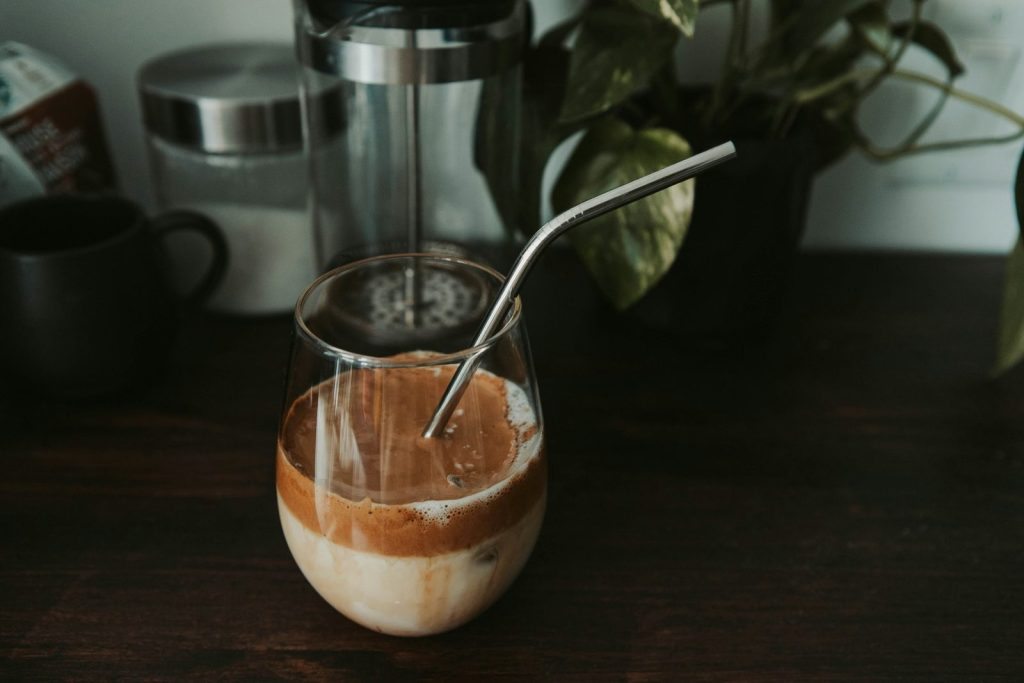
Photo by Mollie Sivaram on Unsplash
Plastic straws are one of the most notorious single-use plastics, often ending up in oceans and harming marine life. Switch to reusable straws made from metal or bamboo.
**Pro Tip**: Always keep a reusable straw in your bag or car to say no to plastic straws when you're out.
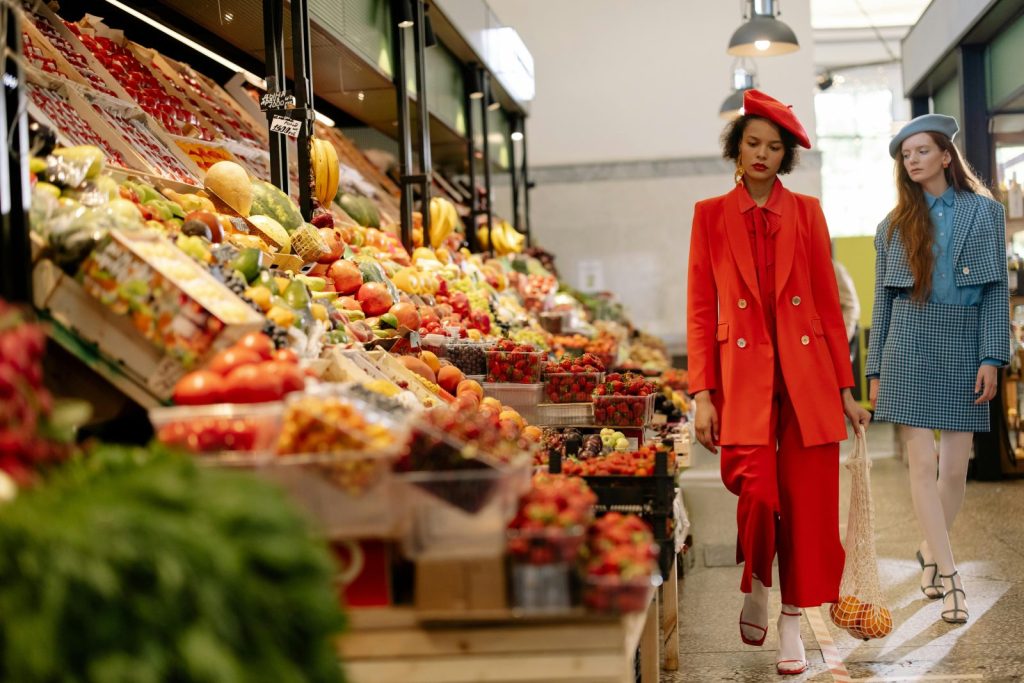
When shopping for fruits and vegetables, those flimsy plastic produce bags can be avoided by using cloth produce bags. Cloth bags are lightweight and often made from breathable materials, keeping your produce fresh.
**Life Hack**: Use different colored bags for various types of produce to stay organized while shopping.
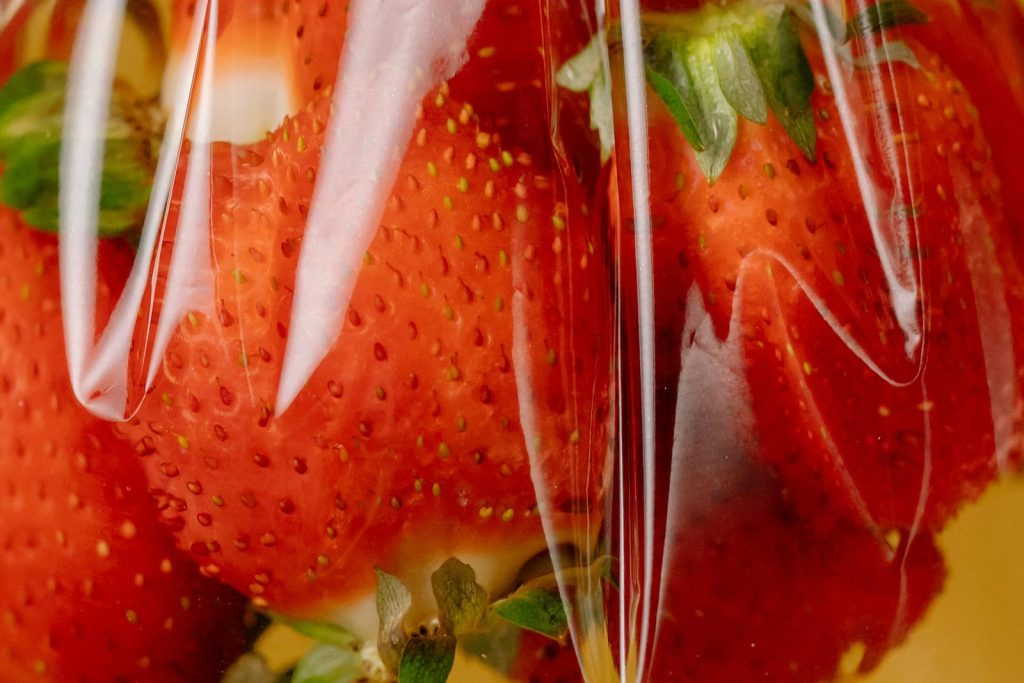
Photo by cottonbro studio: https://www.pexels.com/photo/plastic-bag-with-strawberries-5901940/
Silicone food bags are a fantastic alternative to disposable plastic sandwich bags. They're perfect for storing snacks, sandwiches, and even liquids.
**Did You Know?**: Silicone is made from sand, not plastic, making it a more sustainable material overall.
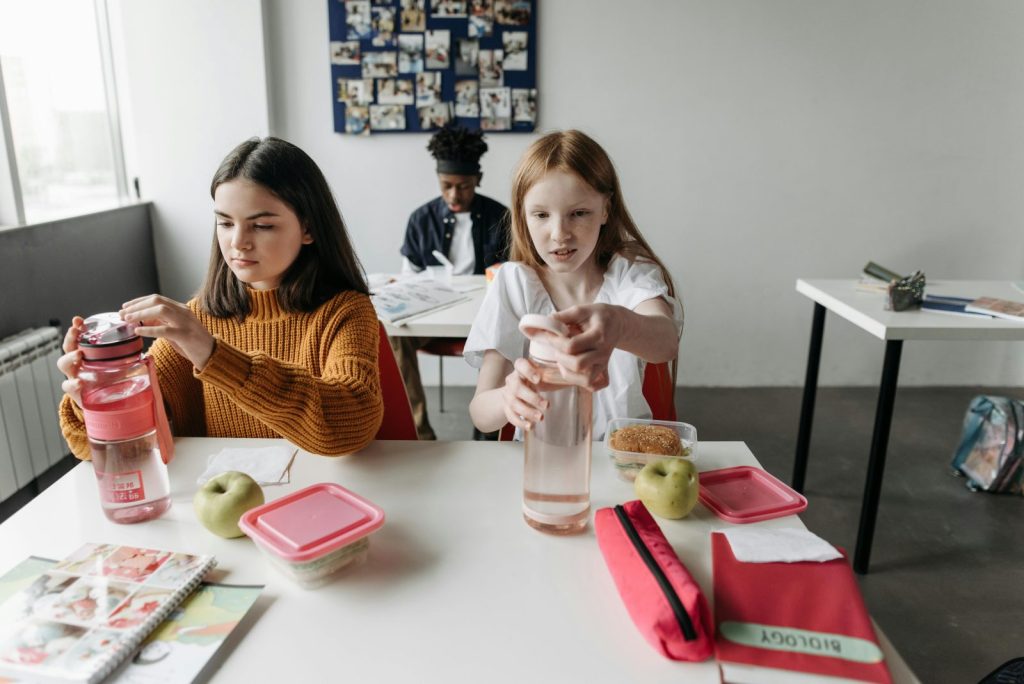
Photo by Pavel Danilyuk: https://www.pexels.com/photo/close-up-shot-of-girls-holding-their-water-bottles-8423403/
Water bottles for single-use are a significant contributor to the alarming issue of plastic pollution. You can save money and reduce waste by switching to a refillable water bottle.
**Pro Tip**: Invest in a good water filter at home to ensure you always have access to clean, great-tasting water.
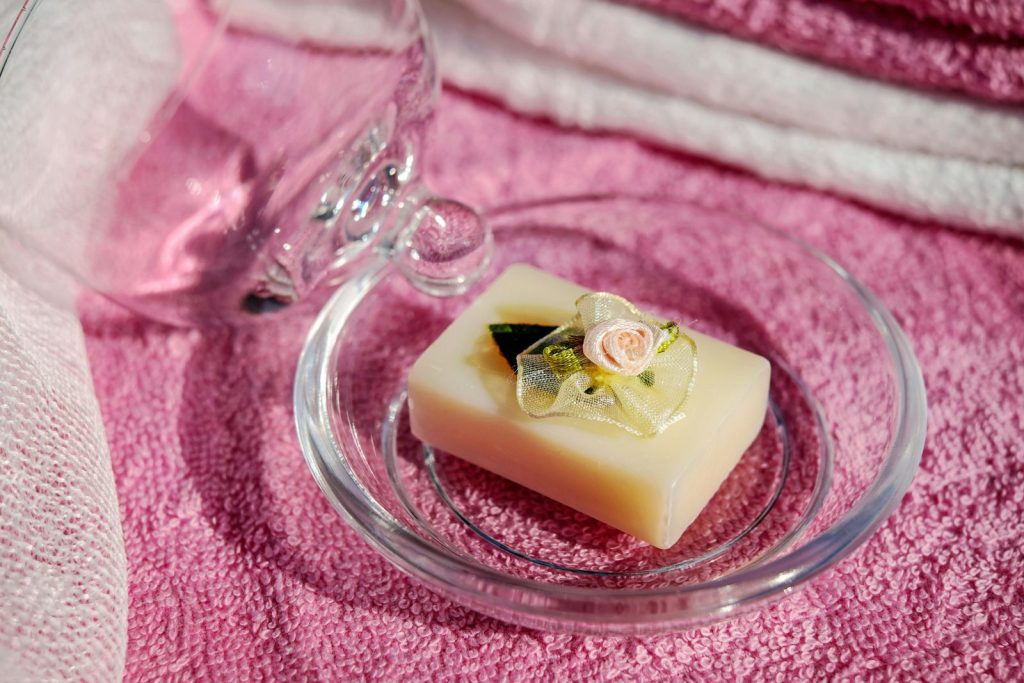
Photo by Pixabay: https://www.pexels.com/photo/cheese-on-saucer-206299/
Ditch the plastic bottles for personal care products and switch to bar soap and shampoo bars. These products come with minimal packaging and last longer than their liquid counterparts.
**Fun Fact**: Shampoo bars are perfect for travel—no more worrying about liquid restrictions at the airport!
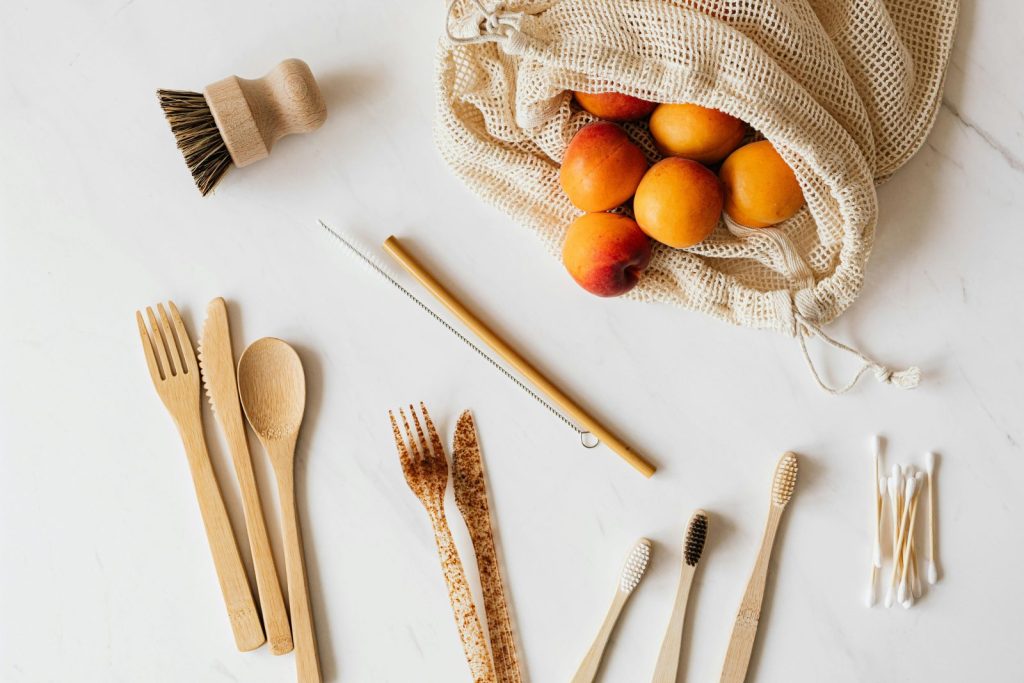
Photo by Karolina Grabowska: https://www.pexels.com/photo/set-of-various-cutlery-and-wash-accessories-near-peaches-4397812/
Consider swapping out those ubiquitous plastic utensils for compostable options that won't harm the planet. Not only are compostable utensils eco-friendly, but they're also made from renewable materials such as cornstarch, bamboo, or wood.
**Eco Tip**: Don't forget to carry a set of reusable cutlery in your bag so you're always prepared when dining out. It's a small but powerful step towards a more sustainable future.

Photo by cottonbro studio: https://www.pexels.com/photo/white-ceramic-plate-with-stainless-steel-fork-and-knife-on-table-6073809/
Reduce your reliance on paper products by switching to cloth napkins and towels. These can be washed and reused, saving trees and reducing waste.
**Did You Know?**: Switching to cloth can significantly reduce household waste and save money in the long run.
Reducing single-use plastics in your household is a big step towards living more sustainably. With these affordable and effective alternatives, you can reduce the environmental impact while enjoying durable and stylish products.
Remember, every small change counts. Together, we can make a big difference. So, go ahead and make these swaps in your daily life—your future self (and the planet) will thank you!
While it may be nearly impossible to eliminate plastic from our lives due to its pervasive presence in modern society, reducing our dependence on it is feasible.
Remember, the goal isn't perfection but progress towards a more sustainable lifestyle.
Feel free to add some comments and share your struggle with plastic dependency.

By embracing sustainable living, we adopt practices that contribute to the well-being of the environment, society, and economy.

Sustainability goes beyond admiration; it is a commitment to maintaining the delicate balance between our species and the planet.
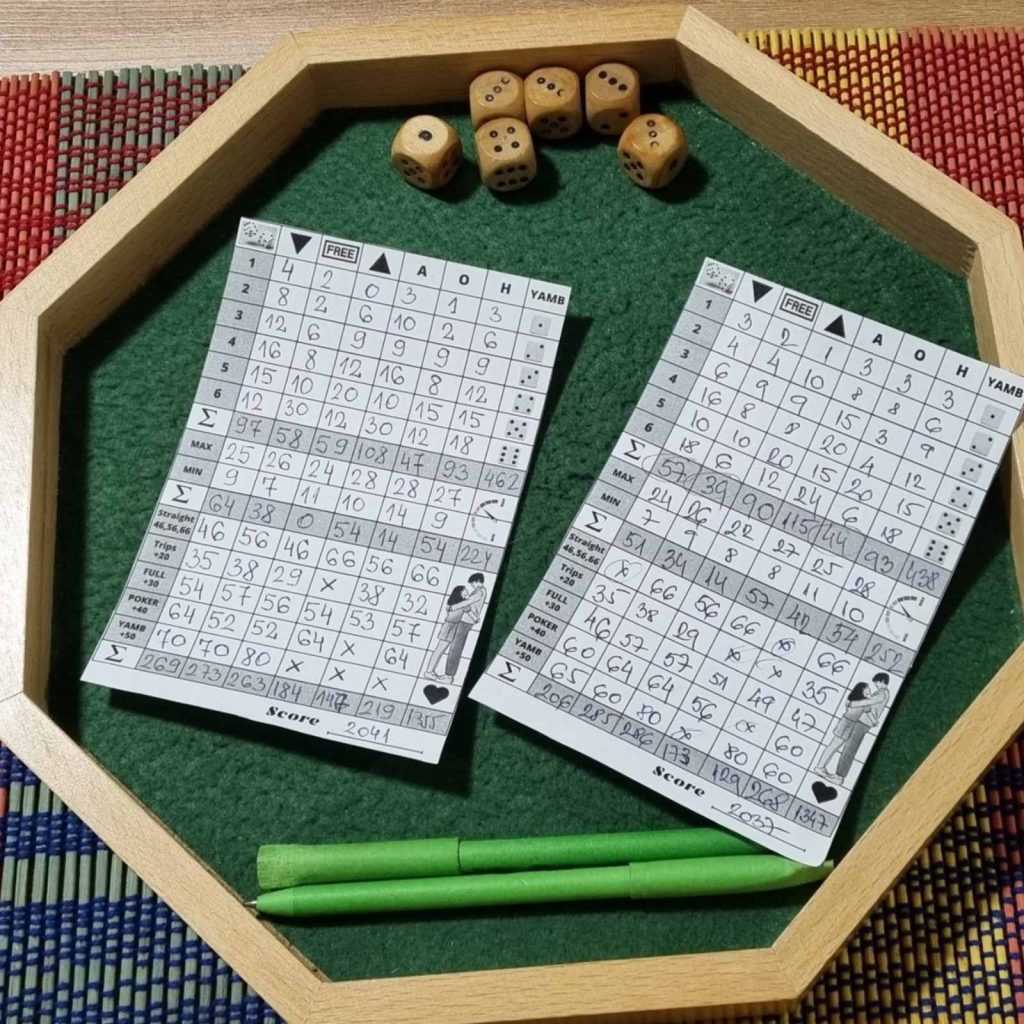
Dive into the world of traditional board games and discover their diverse health benefits. Explore expert insights on how these games contribute to well-being and mental acuity.

Natural deodorant is an effective and environmentally friendly product. It is a healthy option since traditional antiperspirants often contain chemicals.
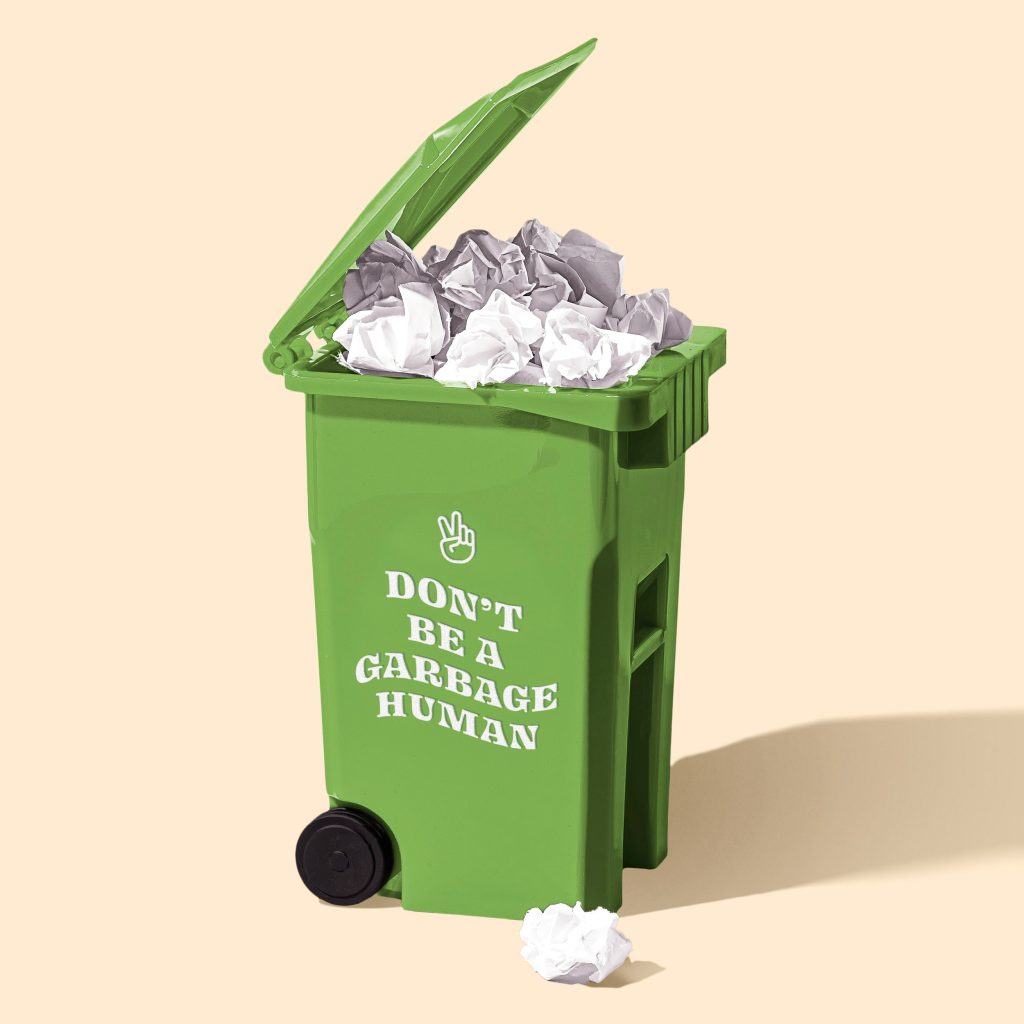
Let’s discover the environmental impact of household waste, and hopefully, this will inspire us to create a new mindset.
Welcome to Sustainable Living by Science. With our scientific mindset, we are exploring how to nurture our well-being while caring for the environment. We are sharing the meaning of sustainability through evidence-based practices. Join us on this journey towards a greener, healthier future where science guides us to make the best choices for ourselves, the planet, and others.
All content is © 2024 by Sustainable Living by Science. All rights reserved.